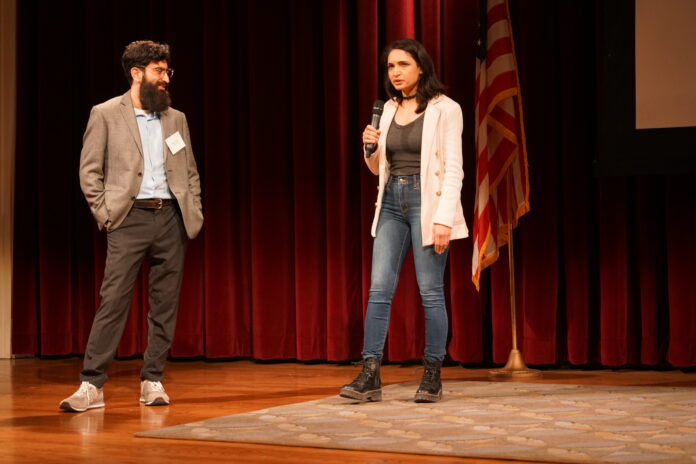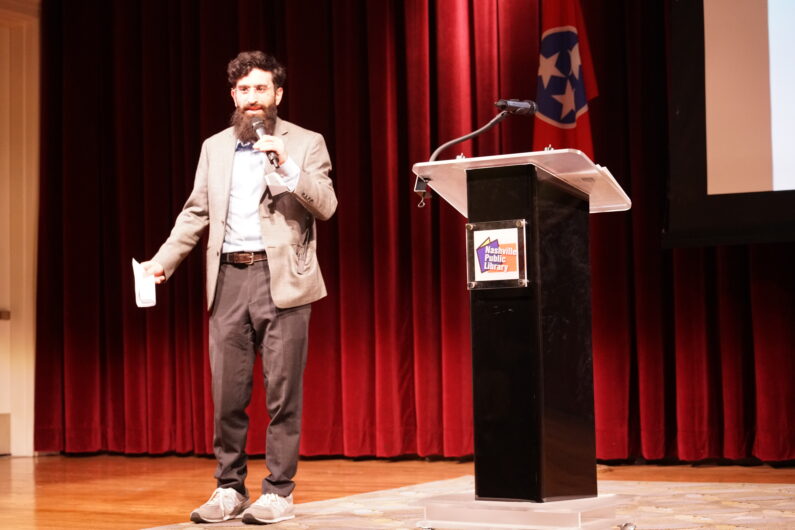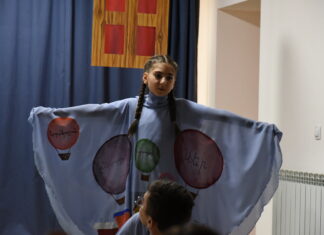NASHVILLE — Nashville was the site in early March of the Armenian American Forum 2025, a weekend conference with representatives from many different Armenian-American organizations informing each other about their work and potential ways of collaboration. There was a strong contingent of speakers on tech and finance issues (see accompanying article here). The main organizers of this conference, Sevan Chorluyan and Naira Ayvazyan, also used the occasion to publicize their unusual independent project to create an Armenian settlement in rural Tennessee, which they call the Hyeland Project and which bears technolibertarian ideological influence.
According to the project’s website (https://tennessee.hyelandproject.com), 13 people have pledged so far to move to the Upper Cumberland region of Tennessee out of a goal of 360. A few are already living there. Once the goal is reached, they will all move.
The website states that people living a “mechanized life” in cities and suburbs have lost touch with nature. Under the heading “Predatory America,” it explains: “From healthcare to housing costs, sometimes it feels like everyone is out to get you. The best protection is to be part of a community that looks out for itself.” The US, it says, is “a country with ever increasing forms of control and restrictions.” Moreover, the website writes: “Our boys and girls are under spiritual and psychological attack from institutions that oppose our values,” though the nature of these attacks are not further spelled out.
On the other hand, it states that “The Armenian culture is to be cherished, nurtured, and lived within.” Personal responsibility is important as part of a larger community, according to the website, while “Gun rights are human rights” and “Property rights are human rights.”
Rural Tennessee was chosen as the target settlement region because, the website states, it resembles Dilijan and the climate is similar to that of the Ararat valley, yet there is the city of Nashville with an international airport close by. Real estate is more affordable compared to other parts of the US, property taxes are low, and Tennessee has neither income nor vehicle tax. The state is fiscally and economically strong, the website continues, and it has what it calls strong freedom rankings.
The Hyeland Project, which has been licensed as a non-profit organization in Tennessee, also intends, the website states, “to create a replicable model for establishing Armenian communities elsewhere too.”










